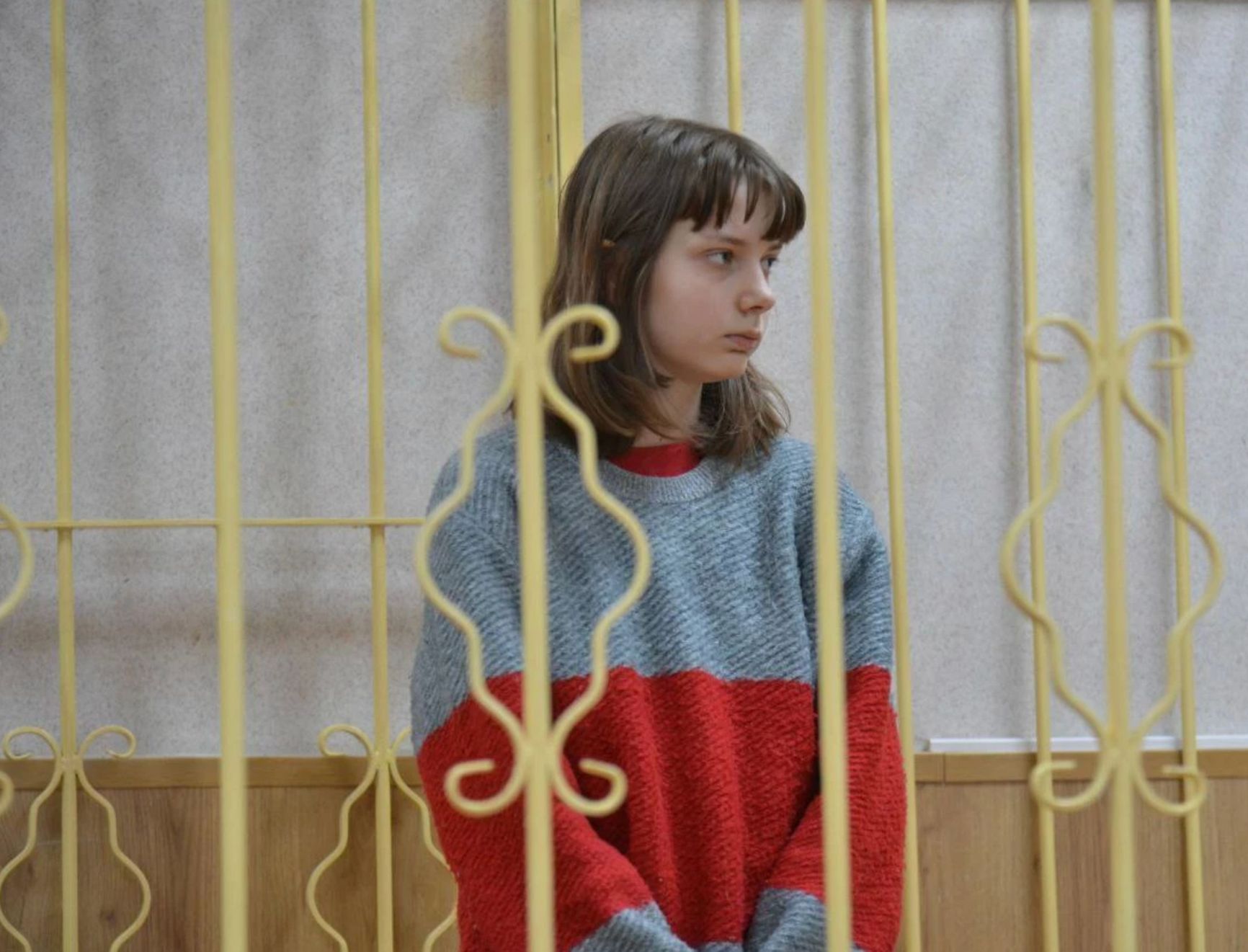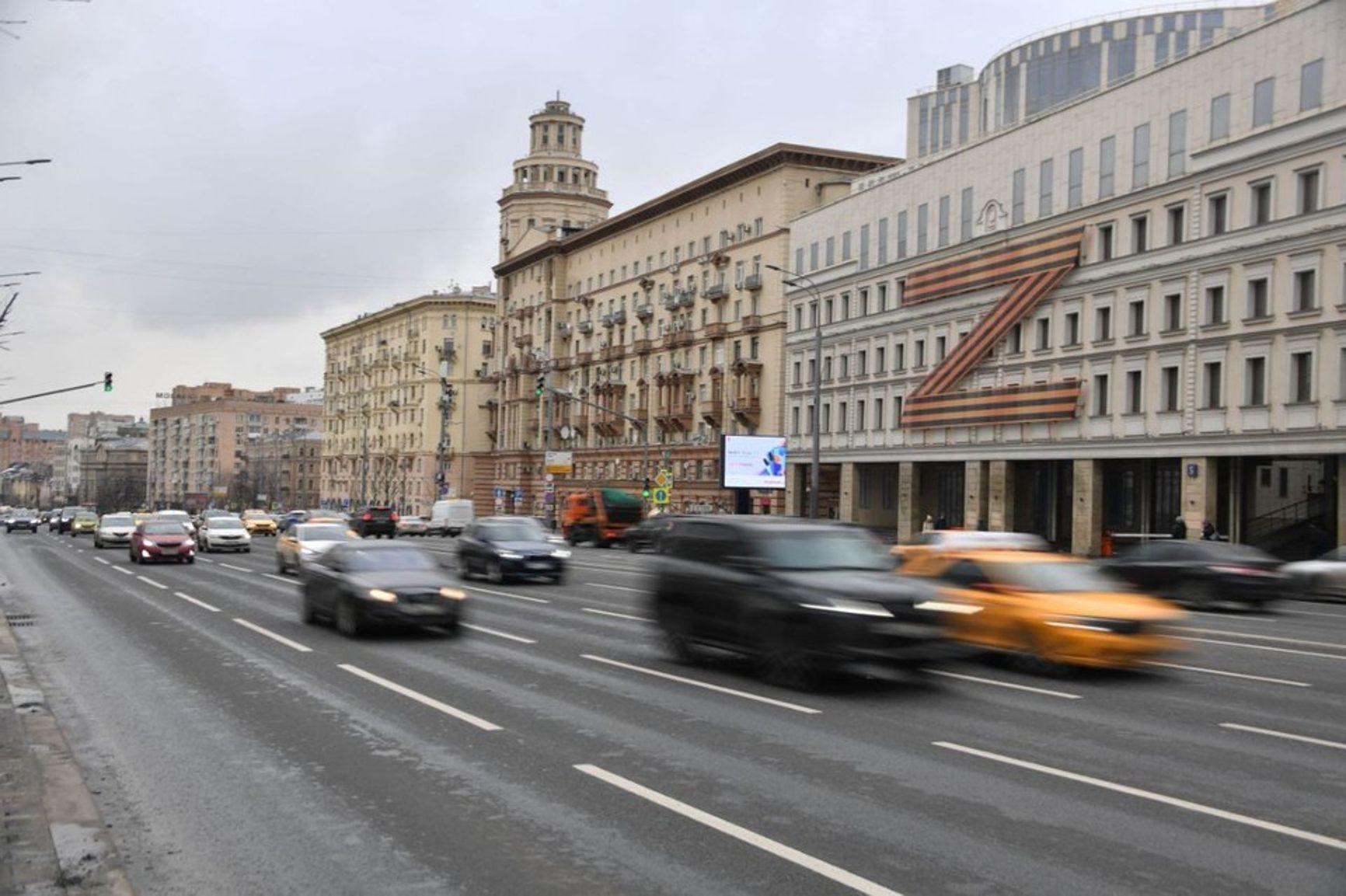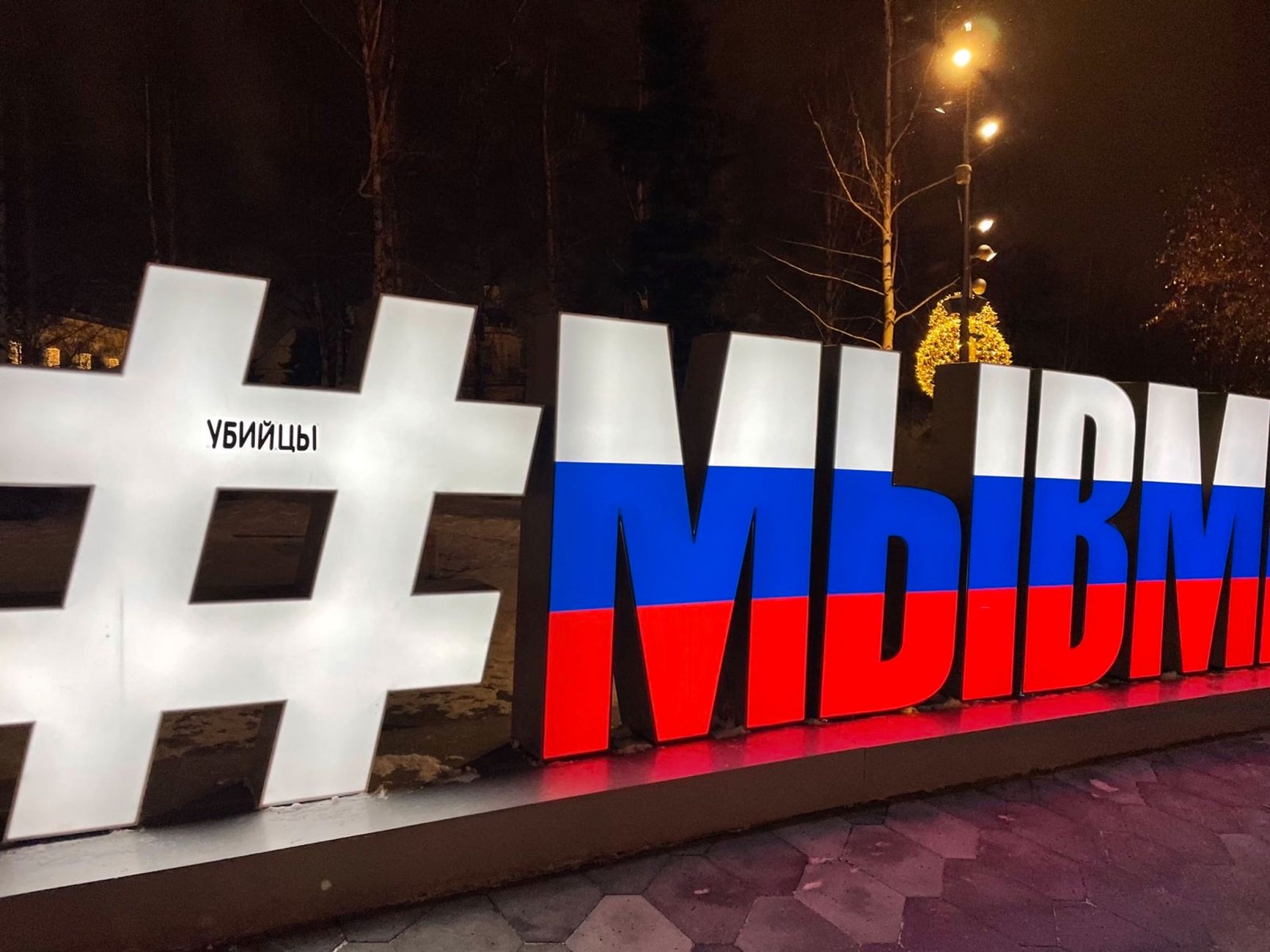

In Arkhangelsk, a faraway snow-covered city, nineteen-year-old university student Olesya Krivtsova faces 10 years in prison for spreading “heresy” about the allegedly non-existent war in student chat rooms. She has already been put on the official list of terrorists and extremists and will now be tried. The organizations that make these lists have many faces and names - Rosfinmonitoring, Roskomnadzor, Center “E”, Investigative Committee, but the reality behind them is still the same huge Stalinist FSB building in central in Arkhangelsk. It’s the building that the Cheka had seized from honest people for itself in the 1920s, and then repeatedly rebuilt and reconstructed (five years ago a 17-year-old boy, Mikhail Zhlobitsky wanted to blow it up “for persecuting and torturing people” and died in the explosion).

FSB building in Arkhangelsk
Olesya Krivtsova is persistent - she was already fined in the spring, she could have backed off, but no. Since then, she had been “restricted in certain activities” and placed under house arrest - all in vain. And the big gray house guys got mad. During the home search a thug in uniform was standing over Olesya with a sledgehammer, saying hello from the PMC “Wagner”.
It so happens that I know this house and the previous generation of “officers” very well - from 1982, when as a young man in Arkhangelsk, I drew “pacific” signs on walls around the city in honor of the war in Afghanistan (one of them is still there, by some miracle, in the square that still bears the name of Lenin). There, in that building, five floors are full of malicious slackers, who systematically, from generation to generation, crush and persecute young people. They “interviewed” me there, too, and I said to them at the time: “If are you so patriotic, if you graduated from the Forestry Institute, then why aren’t you at a logging site? Why didn't you go to Afghanistan?”
Now their heirs are fighting with 19-year-old Olesya Krivtsova. I can imagine how scared and lonely it must be for her, especially considering that it was one of her classmates that denounced her.

Olesya Krivtsova
All of this comes to mind when I see statements to the effect that protest in Russia has been completely suppressed, that there is no opposition anymore, “everyone has left,” or “everyone is silent” (we love this “everyone” or “the overwhelming majority”). What is it like for Olesya Krivtsova to read this while she can still do it? At least Radio Liberty noticed her, while my lonely action had not been noticed by Liberty or any other organization in 1982, except for the KGB (I mention this only because I am very familiar with the feeling of isolation and loss).
But if the “protest is suppressed,” who are the 21,000 people that were detained at the protests in 2022? Who created the 200,000 blocked Internet resources? Why have 370 criminal cases been opened just for anti-war rhetoric? And how many people have not yet been identified and caught? The Federal Security Service is well staffed, but the number of people in its employ is not infinite, the work is painstaking and hard, and there is a lot of paperwork to do!
Any author, who would like to tell the world about resistance in Russia, will be facing a dilemma: he cannot make a list and point his finger at the heroes, otherwise he would be voluntarily helping the FSB by de facto denouncing those people. Let's mention at least the tip of the iceberg. Of course, the indomitable Alexei Navalny, who is featured in the sensational CNN documentary which will air to millions of American viewers in prime time on Sunday. There’s, of course, Ilya Yashin, who, like Navalny, runs his own blog from behind bars; in terms of journalism Navalny and Yashin are the most important figures in Russia today, and hopefully the world's biggest publishers are already in talks with their relatives with regard to publishing their books. The reader will easily complete the list with dozens of names of people not only behind bars, but also at liberty doing their work openly and boldly. Those people may not be coming out to Red Square with placards, but no one doubts their position.
In terms of journalism, Navalny and Yashin are the most important figures in Russia today
Speaking of “legal” dissenters. On Monday, a case was filed against active St. Petersburg deputy Boris Vishnevsky and former deputy Maxim Reznik (Vishnevsky remains in St. Petersburg as a prominent opposition figure, Reznik moved abroad). The “discrediting” statements made in April, following the Bucha events, were dug up, but it is clear that Vishnevsky is guilty of one thing: he’s a go-to figure for people with their problems and troubles, while the other 49 deputies can only envy and throw the Nazi salute. The Yabloko party remains an open and legitimate organization, methodically making anti-war statements, and this more than compensates for the disagreements with them that certain people have on some hot-button issues. Nobel laureate Dmitri Muratov and half the editorial board of the allegedly defeated Novaya Gazeta continue to live and work in Moscow. Another collective Nobel laureate, the supposedly defeated Memorial, continues its work both abroad and in Russia (and the Memorial workers from dozens of cities, starting with Moscow, have not gone anywhere).
The Insider recently reprinted poems from “Disbelief”, a book of anti-war poetry published in London, but most of its authors remain in Russia. And the musician Yuri Shevchuk? And other writers, musicians, actors, who flatly refuse to perform under the letter Z (as it happened recently in the formerly famous Chinese Pilot club)? For reasons already mentioned, I do not give the names of clubs, theaters, and concert halls, where there is still “business as usual” in the sense that people openly speak out from the stage, risking both their lives and their freedom, unlike certain major film directors.

Tabakov Theater
I put the word “legal” in quotes because Vishnevsky and Shevchuk are just as legal and legitimate as Navalny, Gorinov, and Yashin. In the upside-down world called “the Russian Federation” illegal criminals are the ones in power, and the dissidents are the ones who have to lie, “speak in code” and try to keep out of trouble all the time.
But let me get “down to earth.” Lately a Moscow photographer and artist, whom we decided, with her consent, to jokingly (or, perhaps, in all seriousness) call “Radio Girl Kat”, has been in constant contact with me. She traveled abroad for a few months, but returned to Moscow explaining that it was her hometown and she wanted to do something to put an end to the war and the killings as soon as possible. In the bitter cold of January, Radio Girl Kat walks around Moscow and sends photos and videos of small protest installations around the Kremlin and the Cathedral of Christ the Savior. A small placard with the words “V.V. Dickhead” written on it and with a rope noose is floating down the Moskva River towards the Kremlin. There’s a small but clearly legible inscription “murderers” on the giant letters “We are together” installed at the entrance to Zaryadye Park, and it is clear to everyone what kind of “place” we are in. On the bridge near Bolotnaya Square there is a jug with the inscription “Glory to Ukraine. On the observation deck of the Temple of Christ the Savior there are blood-stained toy pups with the inscription “450 children.” I text her: “Be careful, for God's sake, there are paddy wagons and police all around, and cameras all over the place.” But no, I can't stop her.

Moscow - 2023
What would she feel when, frozen from the cold on her way home from a shoot at five in the morning, she opens a website and sees the former world chess champion’s statement: “There is no anti-war protest in Russia today.”
Garry Kimovich, do you realize that you are telling a person that they don’t exist? Do Navalny and Yashin exist? Is Olesya Krivtsova a phantom? If statistics matter, who are those 21,000 detainees? Pardon me for stating the obvious, but what about the seven Soviet citizens who came out in August 1968?
Another obvious thing: in this war, the evil, blood-frenzied and armed to the teeth, will only be stopped by the Armed Forces of Ukraine, equipped with modern guns, tanks and missiles provided by NATO and all countries of good will. But it does not logically follow from this that “there is no anti-war protest in Russia today.” Use your chess logic. When the dungeons collapse, who will welcome you to Russia? Not the abstract freedom, which will still be a long way off, but all these people who, according to you, do not exist.
When the dungeons collapse, you’ll be welcomed to Russia not by the abstract freedom that will still be a long way off, but by all those people
January 9 was the 100th anniversary of the birth of Kharkiv poet Boris Chichibabin, who in his life went through war, poverty, and prison. When he was expelled from the Writers' Union and deprived of every possibility to do literary work, he worked as an accountant at a tram and trolleybus depot for 23 years until his death. He was a recognized poet and knew real literary celebrities, but he still went work at the depot every day and “simply” wrote poetry. I remember a poem he wrote in the desolate and hopeless year of 1971, unsophisticated and lucid, like all his work (interlinear translation):
May God grant you from roots to crown
to prepare without disaster for the break.
To him who is departing, a bow.
To him who is remaining, brotherhood.
Remember from time to time our snow
amid your alien heat.
To him who is departing, a shepherd’s horn.
To him who is remaining, retribution.
Every lot is according to [the person’s] mind,
both the good and the evil one.
Him who is departing, I will understand.
Him who is remaining, I know.
Land of the soul, sick Russia— so filled with bells, primordiality
(with him who is departing, I will make my peace,
with him who is remaining, I will remain)—
grant us, you snowstormy and icy,
mindless and short of memory,
to him who is departing, love,
to him who is remaining, aid.
He who is weak, and he who is short-tempered,
every one has to choose between:
he who is departing, sword and labor,
he who is remaining, hope.
But at the end of the road shine forth
according to the testaments of Sabaoth,
to him who is departing, Sinai,
to him who is remaining, Golgotha.
I’m tired of making sweeping judgments,
measuring immensity by the temporal.
To him who is departing, sadness.
To him who is remaining, faithfulness.